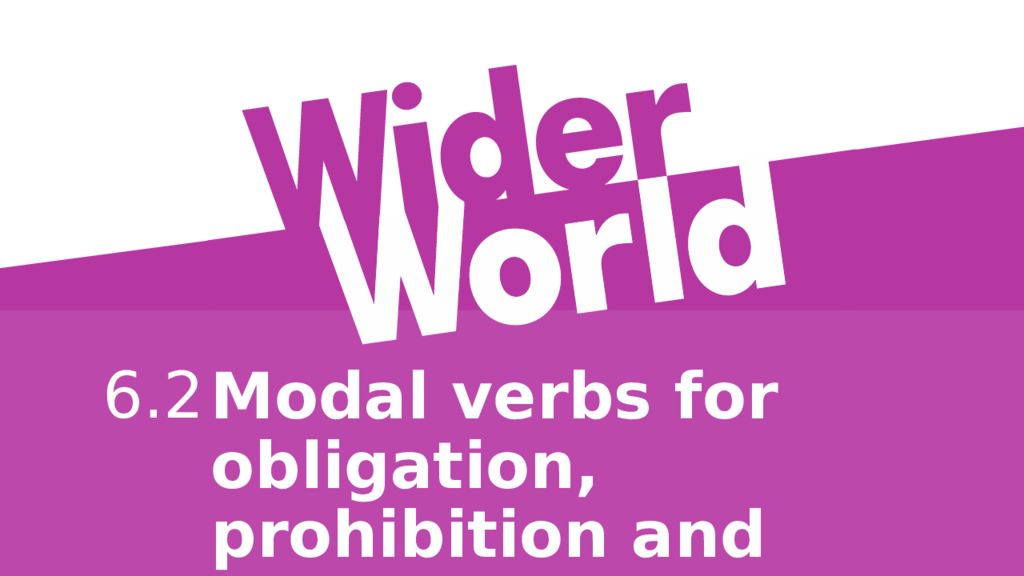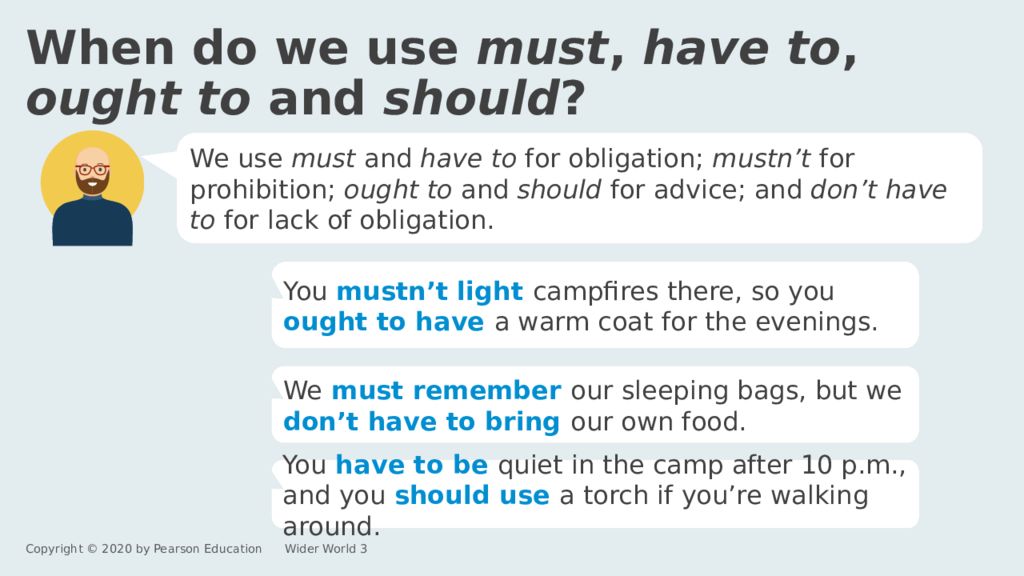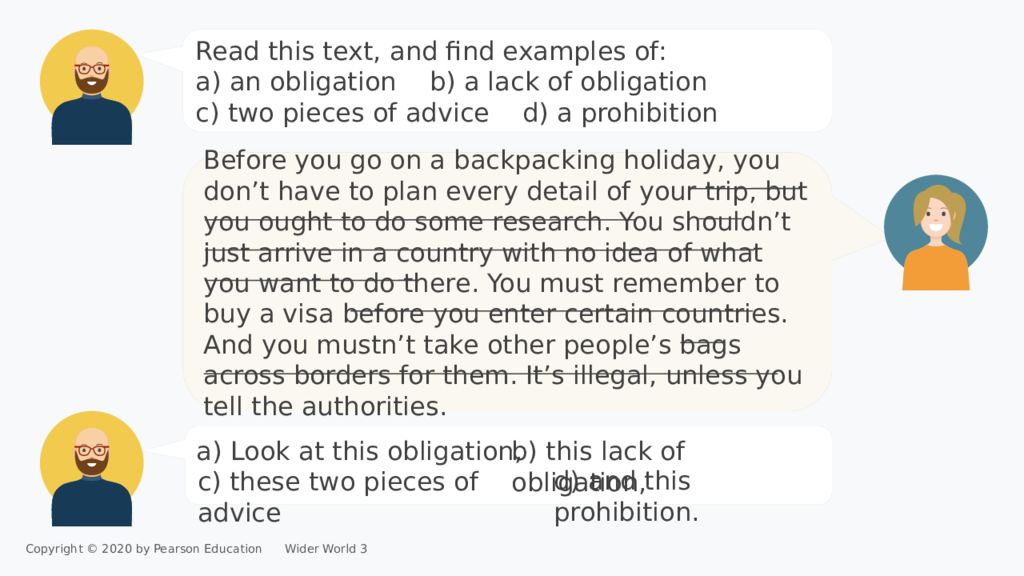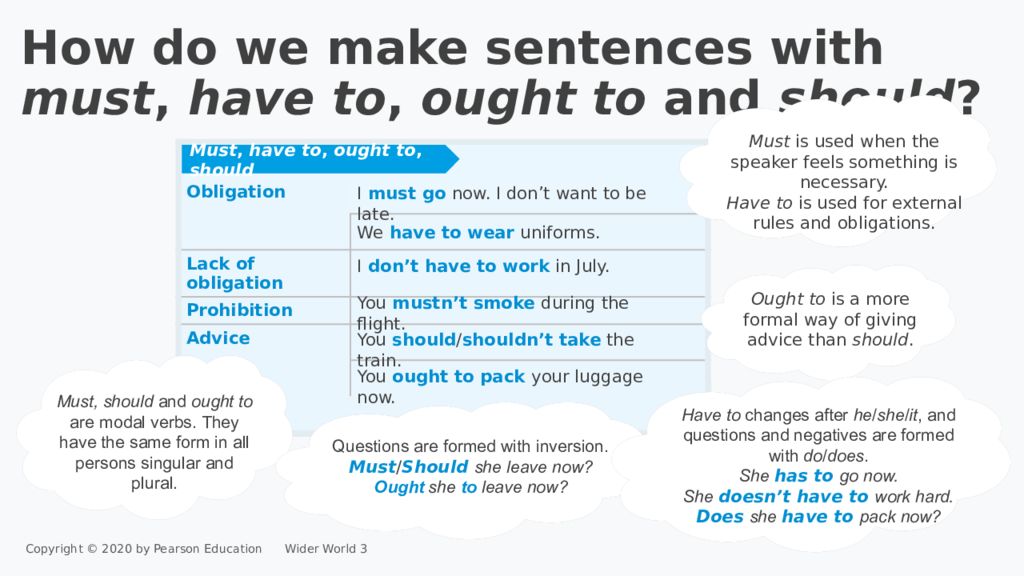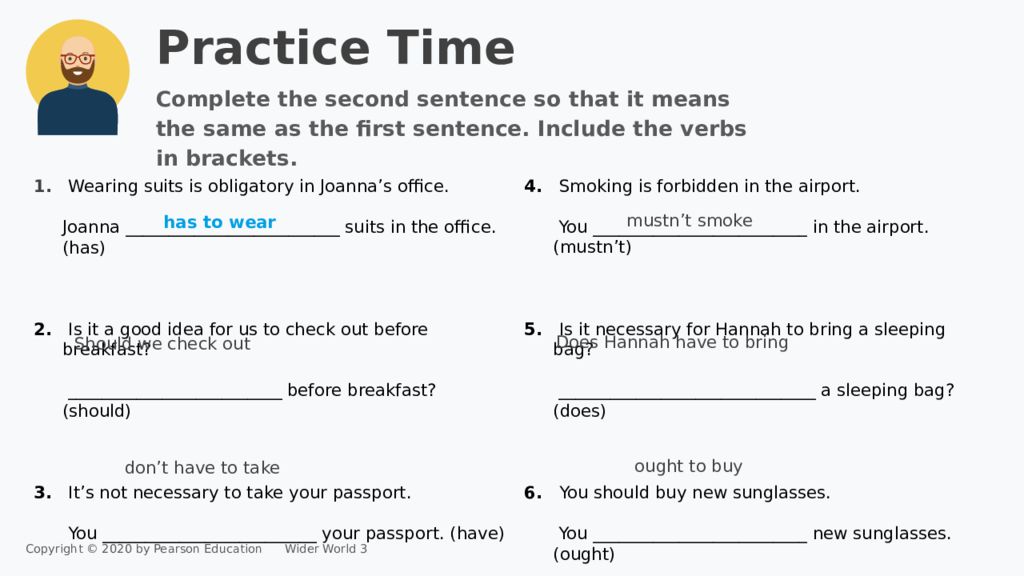Слайд 2
When do we use must, have to, ought to and should ? You mustn’t light campfires there, so you ought to have a warm coat for the evenings. We must remember our sleeping bags, but we don’t have to bring our own food. You have to be quiet in the camp after 10 p.m., and you should use a torch if you’re walking around. We use must and have to for obligation; mustn’t for prohibition; ought to and should for advice; and don’t have to for lack of obligation. Copyright © 2 020 by Pearson Education Wider World 3
Слайд 3
a) Look at this obligation, Read this text, and find examples of: a) an obligation b) a lack of obligation c) two pieces of advice d) a prohibition Before you go on a backpacking holiday, you don’t have to plan every detail of your trip, but you ought to do some research. You shouldn’t just arrive in a country with no idea of what you want to do there. You must remember to buy a visa before you enter certain countries. And you mustn’t take other people’s bags across borders for them. It’s illegal, unless you tell the authorities. Copyright © 2 020 by Pearson Education Wider World 3 b) this lack of obligation, c) these two pieces of advice d) and this prohibition.
Слайд 4
Obligation Lack of obligation Prohibition Advice I must go now. I don’t want to be late. We have to wear uniforms. I don’t have to work in July. You mustn’t smoke during the flight. You should / shouldn’t take the train. How do we make sentences with must, have to, ought to and should ? Must is used when the speaker feels something is necessary. Have to is used for external rules and obligations. To express lack of obligation, we use don’t have to. Ought to is a more formal way of giving advice than should. Must, have to, ought to, should Copyright © 2 020 by Pearson Education Wider World 3 You ought to pack your luggage now. To express lack of obligation, we use don’t have to. Must, should and ought to are modal verbs. They have the same form in all persons singular and plural. To express lack of obligation, we use don’t have to. To express lack of obligation, we use don’t have to. Have to changes after he / she / it, and questions and negatives are formed with do / does. She has to go now. She doesn’t have to work hard. Does she have to pack now? Questions are formed with inversion. Must / Should she leave now? Ought she to leave now ?
Последний слайд презентации: Modal verbs for obligation, prohibition and advice 6.2
Smoking is forbidden in the airport. You _________________________ in the airport. (mustn’t) Is it necessary for Hannah to bring a sleeping bag? ______________________________ a sleeping bag? (does) You should buy new sunglasses. You _________________________ new sunglasses. (ought) Wearing suits is obligatory in Joanna’s office. Joanna _________________________ suits in the office. (has) Is it a good idea for us to check out before breakfast? _________________________ before breakfast? (should) It’s not necessary to take your passport. You _________________________ your passport. (have) Complete the second sentence so that it means the same as the first sentence. Include the verbs in brackets. Should we check out Practice Time don’t have to take mustn’t smoke Does Hannah have to bring ought to buy Copyright © 2 020 by Pearson Education Wider World 3 has to wear
